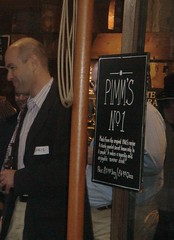Updated: to include my boss’ take on the survey and its findings, via Vimeo embed, below.
The EDJS 2011 – “Clicks, Communities and Conversations†– was launched today by my agency, Brands2Life, in coordination with the Oriella PR Network – our partner network of independent agencies around the world. It examines the views of 478 journalists polled over the last few months.
Fronted by my esteemed colleague and Head of International @mistergrainger and our co-founder, @gilesfraser, we were joined by a panel made up of @kieranalger, @tphallett and @reutermarkjones to comment on the key findings of the study.
The headline trends:
The slump in advertising revenues is slowing. This year, barely 20 percent of the journalists surveyed expected their publications to see a fall in revenue. In 2010, however, 62 percent said this was the case, and in 2009 the figure was 66 per cent.
Those polled say that the popularity of online media is gradually eclipsing that of ‘offline’ publications. This year, the proportion of respondents who agreed their offline print or broadcast outlet had the biggest audience fell to 50 percent for the first time.
Social media are permeating the newsroom. Increasingly journalists are using digital channels such as blogs and Twitter to source and verify story leads.
You can read the study in full here and read SamKano’s take on the findings over on the Oriella blog, but I took a few notes and thought I’d share perspectives here too.
One of the things I found most interesting about the presentation and discussion was a conversation about the value of social media to newsrooms.
Reuters’ Mark Jones said: “I don’t think any serious professional journalist could do their job any more, without being on Twitter.†Talking about the Osama story (which Chris played his part in), Mark said: “One of the things that came out of this was that expert views came into the conversation very quickly. You didn’t have to wait for the TV broadcast or full form stories to get the analyst view. You could see the story being formed in front of your eyes on Twitter. That’s where news is going – and it has profound implications for what journalists and communicators do.”
By the same token, disintermediation in social media is an important development for journalists in sourcing expert views and validating stories. Mark continued: “When people are looking for comments from experts or company representatives, time is of the essence. Twitter supercharges this. In a straw poll of my colleagues – [the delays are] their number one complaint. The answer is in the media.†The challenge to PR execs is to do what’s necessary to research and be hyperconnected with their media contacts.
The flip side to that question came up in discussion – does disintermediation threaten media, as it allows consumers direct access to news from the people making it, at the scene, et al? The panel didn’t come to a conclusion – though I have my views here – in that the role of the media needs to shift – less churnalism and more investigative reporting, less simple narrative and more dynamic storytelling, less straight reportage and more insightful analysis. Some of this relates to the Public Business agenda, in my view: ‘The People’ need to demand this sort of journalism, and allow publishers to fund it.
T3’s Kieran Alger made some interesting comments building on this – as a publication – T3 is working with brands on reciprocal promotion: “Today we have 20,000 followers on Twitter and 17,000 on Facebook. On any day they’ll deliver about 10,000 unique users or 20% of our overall traffic. We increasingly look to people running brands, Twitter feeds and so on to help out with that – asking PRs to help promote our stories to their followers. Big brands like Samsung, for example, have massive numbers of fans.â€
Talking about the plethora of social media venues and communities that media outlets run – and the fact that survey showed a reduction in the number of reporters whose media outlets run their own communities – there was an interesting discussion as to what the different public social media outlets do for media publications. Talking about the rise of Facebook, CBS Interactive’s Tony Hallett said: “It’s horses for courses – some forms of content work on different platforms. Facebook works well for a particular type of very loyal users. Traffic that media gets from social outlets is still small compared to Google, for example, but you do get a certain type of super-user – people that interact with you in a big way. [These users] make for a very fun environment.â€
Tony had given us another example of a passionate audience earlier in the discussion (making an entirely separate point): “On ZDNet, we have a subset of users that go crazy for photos of data centres – data centre porn… These are extremely secure, secretive environments, so we will take photography and video supplied to us – and are transparent about sourced material.” Which, whilst it makes the serious point that publishers are keen for more interactive comment, is amusing for the fact that it underlines the adage – that it takes all kinds.
For me, the overall takeaway is that the platforms and mechanics for engaging with media continue to shift, and professional communicators need to evolve their comms infrastructure – from the content they create to the way we pitch the media – to suit.
Also, spend more time on Twitter.
I’ll add my thanks to those of my colleagues for the fantastic discussion and encourage you to head over to the Oriella blog to join the digital debate.
Oriella Digital Journalism Study 2011 from Brands2Life on Vimeo.



